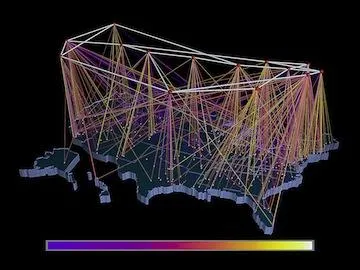Transition to IP must include all

The Leadership Conference on Civil and Human Rights (LCCHR) – which includes CWA – sent a letter to the FCC urging the Commission to focus on three principles in the transition from circuit-switched to all-Internet Protocol (IP) networks. The FCC should:
ensure that high quality, affordable, and reliable voice and high-speed broadband services are provided regardless of income, race, or geography.
ensure that long-established consumer protections are maintained during and after the transition.
support economic activity, high-speed networks, and quality jobs.
The Leadership Conference noted the “great benefits that come from upgrading technologies in terms of economic growth and competitiveness, flexibility, job creation, consumer service, and cost.” At the same time, the Leadership Conference acknowledged “that challenges may arise a providers upgrade the nation's infrastructure.” To achieve the positive benefits, the letter emphasized the critical role the FCC plays in monitoring the process of technology transitions.
The FCC is now considering technology trials to test the transition from circuit-switched to all-IP networks. “Should the Commission decide to pursue these trials, those trials should be transparent,” the Leadership Conference wrote. “Trials cannot change the fundamental precepts of universal service, public safety, network reliability, and consumer protections, which remain as relevant in an IP network as they do in the current system.”
But the Leadership Conference warned that technological trials “cannot change the fundamental precepts of universal service, public safety, network reliability, and consumer protection, which remain as relevant in an IP network as they do in the current system.”
The Leadership Conference letter referenced a June, 2013 National Telecommunications and Information Administration report which pointed out that “there are disturbing disparities in the rates of home broadband adoption when considering race, income, education, and location.”
The conference letter concluded that the FCC trials, “... could be an opportunity to evaluate how the IP transition can aid underserved communities by improving digital literacy, lowering costs, and increasing overall broadband adoption.”
LCCHR letter to the FCC (Leadership Conference on Civil and Human Rights, Oct. 18, 2013)
Exploring the Digital Nation: America’s Emerging Online Experience (NTIA, Jun. 7, 2013)
CWA members oppose AT&T’s attempts to stop serving rural and low-income communities in California
CWA urges FCC to deny industry attempts to loosen pole attachment standards
CWA District 6 reaches agreement with AT&T Mobility



